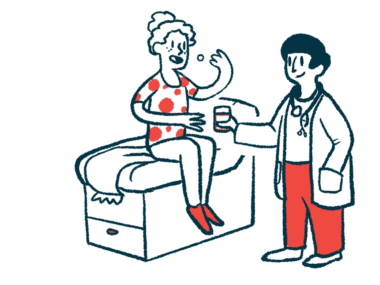What I wish for in a patient-provider relationship
How medical professionals can help ensure a successful appointment
Written by |

Doctor to patient: “I went to medical school. I think I know what I’m doing and what is best.”
Patient to doctor: “My [arbitrary number of years] living with [rare disease] trump the 15 minutes you spent learning about it in class. I think I know my body and what is best for me.”
Who is right? Who is wrong?
But the bigger, more important question is this: Why does it matter? The goal shouldn’t be to determine who’s right and who’s wrong, but to improve a patient’s well-being.
My long and winding road to diagnosis
Since I began experiencing health problems in 2010, the conversation above has happened often. I was even more forceful and authoritative while I was still on active duty with the U.S. Army. But the angrier and more defensive I got, the more defensive my doctors became, and the less they were willing to help me.
After I medically retired from the Army in 2011 and began my journey with Veterans Affairs, this conversation continued to play out. Having an atypical presentation of nearly all my health issues, including seronegative myasthenia gravis, hasn’t helped, either. The providers I visited did as they were trained and treated what they saw.
Unfortunately, what my medical team saw and what I was experiencing were very different. The more I pushed, the firmer they stood. It wasn’t until I reminded myself that people get into the healthcare field to help others. It’s one of the many reasons I became a medic — but I digress.
Why does this matter? Because when I chose to see the people on my medical team as people first and providers second, my attitude changed. When my attitude changed, so did theirs.
I wish it didn’t take my attitude changing for me to finally get a diagnosis and a quality care team. But that’s how my journey went.
Ultimately, a successful patient-provider relationship requires both parties to be open and cooperative. While it’s important for us patients to approach these interactions respectfully, I believe providers can also take steps to ensure a more productive appointment.
The following is my wish list for medical professionals.
My wishes
I want to be seen not just as a patient, but as an individual with unique symptoms and needs.
I wish more time was spent in medical school teaching young doctors to think critically and be open-minded. While the adage “when you hear hoofbeats, think horses, not zebras” may often hold true, providers need to recognize that zebras do exist.
I wish providers had more time daily for research and professional development. That way, they could have the most up-to-date information about the conditions they treat.
I believe a diagnosis of conversion disorder, also known as functional neurological symptom disorder, should be left to a patient’s psychiatrist or psychologist. I don’t think it should be the go-to answer when making a differential diagnosis.
I’d appreciate longer appointments so that neither my provider nor I feel rushed. This improvement would give us time to dig into the nitty-gritty of what I’m experiencing.
I want the overall focus of my care to be on helping me live the best life possible while battling a rare disease. I want providers to take a holistic approach rather than simply adding another pill to my morning routine.
I wish providers would take third-party accounts of my quality of life more seriously, especially when discussing independent activities of daily living. The tasks my husband does for me have often been dismissed because they’re things “he’d have to do for himself anyway.”
Ultimately, my biggest wish is that those of us in the rare disease community don’t spend years needlessly suffering in pursuit of a diagnosis and improved quality of life.
What would you add to this list? Please share in the comments.
Note: Myasthenia Gravis News is strictly a news and information website about the disease. It does not provide medical advice, diagnosis, or treatment. This content is not intended to be a substitute for professional medical advice, diagnosis, or treatment. Always seek the advice of your physician or other qualified health provider with any questions you may have regarding a medical condition. Never disregard professional medical advice or delay in seeking it because of something you have read on this website. The opinions expressed in this column are not those of Myasthenia Gravis News or its parent company, Bionews, and are intended to spark discussion about issues pertaining to myasthenia gravis.




Leave a comment
Fill in the required fields to post. Your email address will not be published.